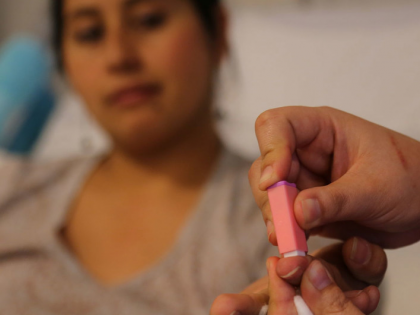COVID-19 impact massive on preventable diseases such as cancer and diabetes
By Lokmat English Desk | Published: September 6, 2020 07:31 PM2020-09-06T19:31:01+5:302020-09-06T19:33:24+5:30
The COVID-19 health crisis has caused massive disruption worldwide in diagnosing and treating people with deadly but preventable diseases ...

COVID-19 impact massive on preventable diseases such as cancer and diabetes
The COVID-19 health crisis has caused massive disruption worldwide in diagnosing and treating people with deadly but preventable diseases such as cancer, diabetes, and heart ailments. In such a scenario, government authorities across the globe everywhere have been asked to take greater steps to tackle non-communicable diseases. Recently, the World Health Organization (WHO) said that the pandemic has exposed the fact too little has been achieved, even though these illnesses account for seven in 10 deaths worldwide. WHO Director General Tedros Adhanom Ghebreyesus, said the coronavirus had“preyed on people”with NCDs, and that the risk factors they face“are increasing vulnerability to COVID-19, infection, and the likelihood of worse outcomes, including in younger people.”
The four most common NCDs are cardiovascular disease, cancer, diabetes and chronic respiratory diseases; together, they contribute to more than 40 million deaths a year, said Dr Bente Mikkelsen, Director, WHO Division of Noncommunicable Diseases."The most recent study shows that there is a disruption in healthcare services including NCD diagnosis and treatments in 69 per cent of cases", she said. "In cancer, there are the highest numbers, with 55 per cent of people living with cancer (having) their health services disrupted.”Dr Mikkelsen noted that those living with one or more NCDs were among the most likely to become severely ill and die from the new coronavirus. Studies from several countries had indicated this, she said, highlighting how data on indigenous communities in Mexico, showed that diabetes was the most commonly found disease among COVID-19 fatalities. Research also found that in Italy, of those who succumbed to COVID-19 in hospital, 67 per cent suffered from hypertension and 31 per cent had type 2 diabetes.
Worryingly, the WHO medic also noted that another study had indicated that the world is not on track to meet Sustainable Development Goal (SDGs) pledges on NCDs by 2030 – namely to reduce by a third the number dying before they reach 70 years of age.Only 17 countries are set to achieve these targets for women and only 15 were on course to do the same for men, Dr. Mikkelsen said, noting that premature mortality for diabetes was now“going in the wrong direction”. On the other hand, developing countries will experience the heaviest burden, with the chances of dying from a NCD being three times higher in Fiji and Mongolia, than in Norway or Japan. In his regular end of week briefing, WHO chief Tedros Adhanom Ghebreyesus, adopted an optimistic tone, telling journalists that although many challenges remain, WHO was“encouraged by the progress we have made against this new virus", over the course of the past eight months."With national unity and global solidarity, we can and will end the COVID-19 pandemic."